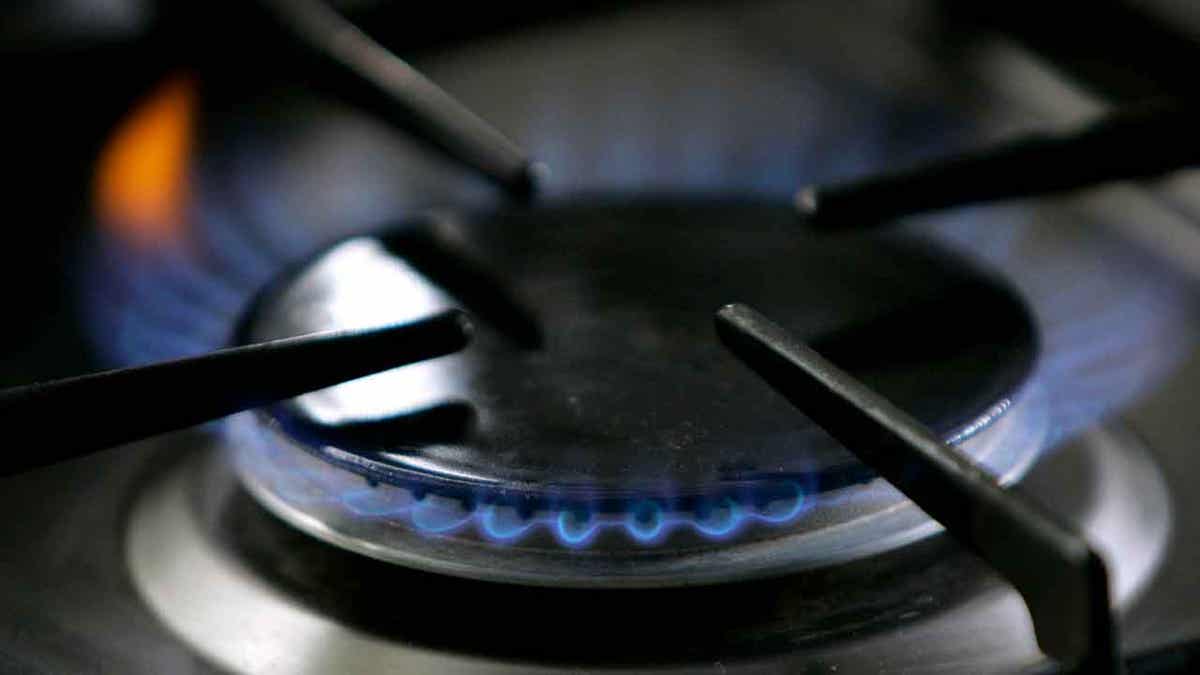Liberal city exempts celebrity chef from gas stove ban
Rudford's restaurant owners Nick and Jeff Kacha discuss Palo Alto granting celebrity chef José Andrés an exemption.
The Biden administration filed a motion earlier this week asking a federal appeals court to reinstate the ban on natural gas hookups in new buildings proposed by the city of Berkeley, California.
In an amicus brief filed with the U.S. Court of Appeals for the Ninth Circuit on Monday, the Department of Justice (DOJ) argued the Energy Policy and Conservation Act (EPCA) of 1975 doesn't prohibit local elected officials from addressing a "health and safety concern." The court ruled in April that Berkeley's law — which technically bans gas pipes, not appliances, in new building construction — effectively violated the EPCA.
"The panel opinion in this case upended those settled expectations. It held that a particular municipal ordinance addressing a health and safety concern identified by local elected leaders is preempted by the Act — even though the ordinance does not regulate the energy efficiency, energy use, or water use of a covered product," the DOJ stated in the brief.
"The ordinance prohibits the installation of certain energy infrastructure in new construction," it continued. "It thereby affects, indirectly, the circumstances in which some products may be used in some locations. The panel did not explain why this ordinance’s indirect effects warranted preemption or why other health and safety ordinances would not."

Democratic-led cities nationwide have passed laws prohibiting new buildings from having natural gas hookups as part of their broad climate agenda. (AP Photo/Thomas Kienzle, File)
On April 17, the appeals court unanimously ruled that, while the EPCA specifically prevents local jurisdictions from preempting federal home appliance regulations, the Berkeley law targeting piping in new buildings had that same effect.
Judge Patrick Bumatay, who penned the opinion of the court, said the law took a "circuitous route to the same result."
JOE MANCHIN VOWS TO FIGHT BIDEN'S WAR ON APPLIANCES: 'NOT SUPPORTING ANY OF THE CRAZINESS'
"Instead of directly banning those appliances in new buildings, Berkeley took a more circuitous route to the same result," he wrote. "It enacted a building code that prohibits natural gas piping into those buildings, rendering the gas appliances useless. In sum, Berkeley can’t bypass preemption by banning natural gas piping within buildings rather than banning natural gas products themselves."
In July 2019, Berkeley's city council passed the ban which was set to go into effect in January 2020, making the city the first in the nation to approve such a measure. Berkeley Councilwoman Kate Harrison, who authored the legislation, said at the time that it was part of the city's effort to take "more drastic action" on climate change and curb greenhouse gas emissions.

President Biden is pictured with Energy Secretary Jennifer Granholm. The Department of Energy is pursuing regulations that would take 50% of current gas stove models off the market. (SAUL LOEB/AFP via Getty Images)
However, months after it was approved, the California Restaurant Association (CRA) filed a federal lawsuit challenging the city's ability to pass a law banning new natural gas hookups. After a lower court ruled in favor of Berkeley in July 2021, the CRA filed an appeal, leading to the April ruling.
"The Ninth Circuit has unanimously affirmed the central issue in this case: local ordinances cannot override federal law," CRA president and CEO Jot Condie said in a statement after the appeal court ruling in April.
"Cities and states are not equipped to regulate the energy use or energy efficiency of appliances that businesses and homeowners have chosen; energy policy and conservation is an issue with national scope and national security implications," Condie said.
CLICK HERE TO GET THE FOX NEWS APP
Farimah Brown, a lawyer for Berkeley, told Fox News Digital at the time that the city was "evaluating the decision and its next steps."
The case has drawn the attention of industry groups that supported CRA — including the American Gas Association and Air Conditioning, Heating, and Refrigeration Institute — and environmental groups and other jurisdictions across the country that supported Berkeley's ordinance, including the National League of Cities, California, Maryland, New York, Oregon, Washington, D.C., and New York City.















































